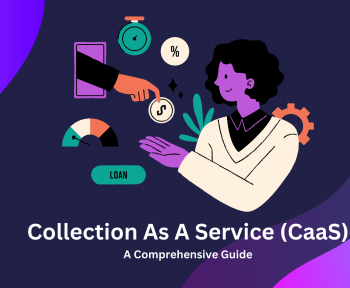Notice
- Demand notice (Dunning letter, soft legal notice¹/EMI reminder notice): Legal notice sent through an Advocate to the customer, demanding to pay the overdue amount. As and when the dues accrue, we can send this notice to customers anytime. Debt collections service companies also can mention the time (Immediately, One week, 15 days) to repay the loan to hold further legal consequences.
Stage: At any stage, this notice can be sent to customer from X DPD to infinity.
Communication Mode: By way of e-communication or through RPAD (Registered Post with Acknowledge Due).
Outcome:
- Considering the notice customer may pay the overdue.
- Customer may ignore the notice.
- The customer put a reply to the notice by self or through his Advocate with his views about the dues.
Further action against this demand notice:
- No further action against this demand notice in the early stages.
- Considering the customer payment/reply we may recall this notice.
- This Notice can be issued before filing a Civil suit/Summary suit/Recovery suit and at the time of filing/trial, we may show this as pre intimation or proof of demanding the overdue/outstanding amount.
2. Loan Recall notice: This is the Pre-Intimation of Notice issued to the customer about the termination of the Loan Agreement or recall the loan facility due to non-payment of instalment with claiming the total outstanding amount. This will be sent through designated Advocate by the debt collections services entity.
Stage: On Stage of SMA (Special mention case), we can issue Loan recall notice subject to the terms mentioned in the agreement. Usually, this action will be taken when the customer missed out 3 or more instalments.
Communication Mode: By way of e-communication or through RPAD (Registered Post with Acknowledge Due).
Outcome:
- Considering the notice customer may pay the overdue.
- Customer may ignore the notice.
- Customers may put a reply to the notice by self or through his advocate with his views about the overdue.
Further action:
As per the Loan contract when a customer having future tenure to repay his loan instalments and due to non-payment if the bank/finance company wants to take up further legal steps to claim the total outstanding with immediate effect it’s mandatory to issue such notice to the customer.
- When the customer fails to repay the overdue even after issuance of this notice, the bank can file a case against the customer before a judicial authority to recover the dues.
- File recovery suit/Summary Suit/Civil suit before District Civil Judge
- Present customer’s security Cheque to claim the total outstanding amount
- File Arbitration before the Sole Arbitrator as per Terms and condition of the agreement
3. Demand notice U/s Sec 138 of NI Act. And Sec25(1) Payment and settlement Act.: When the ECS/Auto Debit/NACH gets dishonor, bank/Finance companies have a provision to claim that amount from the borrower ‘U/s 25 of Payment and Settlement Act. 2007’. When a physical Cheque gets dishonored, bank/Finance companies have a provision to claim that amount from the borrower U/s 138 of Negotiable instrument Act (N.I Act). When the Cheque/mandate gets bounced, before filing a case against a borrower, the bank should send a notice through his Advocate to the customer demanding the claim amount within 30 days from the date of Dishonour.
Stage: Any of the buckets (X to infinity) as and when ECS/NACH/Auto Debit mandate or Cheque get dishonor, bank/Finance company have the right to send the notice.
Communication Mode: By way of e-communication or through RPAD (Registered Post with Acknowledge Due).
Outcome:
- Considering the notice customer may clear the overdue.
- Customer may ignore the notice.
- Customers may put a reply to the notice by self or through his advocate with his views about the overdue or dishonor of the instrument.
- May agree to contest the case before the judicial authority.
Further action: A complaint can be filed before District Magistrate
4. Notice U/s 21 of Arbitration and Conciliation Act: This is the Intimation cum demand notice issued to the customer before step into Arbitration proceedings and after issuance of Loan Recall notice to resolve the dispute or to recover the claim amount. The Notice will be issued to the customer before filing a petition before Sole Arbitrator with giving further actionable process of the dispute. Notice can be sent by Power of Attorney (POA) holder the bank or through his designated Advocate
Stage: If the purpose is to recover the overdue, The Arbitration process took place on SMA/NPA Level, in an exceptional scenario if any dispute on the loan we can refer to the Arbitrator to resolve the issues at any point of time.
Communication Mode: By way of e-communication or through RPAD (Registered Post with Acknowledge Due).
Outcome:
- Considering the notice customer may pay the overdue.
- Customer may ignore the notice.
- Customers may put a reply to the notice by self or through his advocate with his views about the overdue.
- Ready to contest the case
Further action: Considering customer response bank/Finance company may file a petition before the Arbitrator to seek relief on the dispute.
- Pre-Litigation
To save time and litigation expenses we use these pre-litigation options to resolve the disputes.
- Conciliation/Mediation: When case comes into default, rather approach judicial authority, we can use this as an alternative to resolving disputes.
Process:
- Appoint Conciliator and place of conciliation and date of the conciliation
- Send notice to the customer to come and meet the conciliator to resolve the disputes
- Mediator will be acting as a middle man to resolve the dispute arise between the bank and the customer
- After discussion, if both the parties agreed for compromise, the conciliator will record the MoU (Memorandum of Understanding) duly signed by both the parties followed by the conciliator.
Stage: Use this process in NPA cases, however considering the dispute we can use this tool at any of the stages.
Communication Mode: By post or Hand delivery
Outcome: We can save the cost and resolve the dispute in a very short time and also, we can bridge the relationship with customers
Further action: No action can be taken with this MoU, however, this can be used as evidence at the time of further litigation to prove the dispute or claim amount.
- Lok-Adalat: When case come into default, rather than move into Litigation, we can use this as an alternative tool to resolve disputes. Lok Adalat is also a mediation but this will happen before the judicial officer and the Award (conclusion) passed by the authority is legally valid as like a court order.
Process:
- Identify the NPA cases and give a request letter by POA holder on behalf of the company to “District Legal Service Authority (DLSA)” or “State Legal service Authority (SLA)” along with supporting documents.
- At a time, we can refer to 50-100 cases.
- After verifying the documents by legal service authority, they will fix one date to resolve the disputes.
- Notice being sent to both the parties to come and appear on a specified date to resolve their dispute.
- Notice can be issued to the parties with giving sufficient time (At least 15 days).
- Sitting Judge or Member secretary of DLSA will be acting as conciliator.
- On the Adalat date, if both the parties appear, the matter can be discussed and resolved in the presence of the Conciliator.
- Once they come into compromise/conclusion after all negotiation, the conciliator will pass an Award (record the details in writing along with claim amount and repayment details duly signed by both the parties followed by conciliator signature).
- This Award is as equal as Court order and all this process carried with free of cost.
- Even customer can approach Lok Adalat directly to settle his loan or resolve the disputes with follow the same process as mentioned above.
Stage: We can refer NPA cases to Lok Adalat.
Communication Mode: By post or Hand delivery.
Outcome:
- Customer may appear and resolve/settle his disputes/claims.
- Customer may appear and did not agree to settle the matter.
- Customer/banker may not appear.
Further action: Since this is a pre-litigation process, we cannot take any action against the customer even if the customer fails to appear or is not ready to settle the matter before Adalat.
- Litigation
- Sec 138 NI Act:
After dishonor of Cheque/ECS/NACH/Auto Debit, we send notice to customers within 30 days from the date of return. As per the provisions of Section 142 of the Negotiable Instruments Act, a complaint can be made about the offense of cheque bounce under Section 138 of the NI Act, within one month of the expiry of 15 days period from receipt of the notice by the drawer of the cheque if no payment is made within those 15 days.
Stages:
- Complainant will file a complaint before District Magistrate.
- The magistrate may issue a notice to accused if any delay in filing.
- If there is no delay, Magistrate will issue Summon against the accused through registered post to appear in person with his advocate.
- It also can send Summon through jurisdiction police to serve in person.
- If a customer fails to appear before Hon’ble Magistrate on the specified date due to any issues, same should reach to the knowledge of the court through his Advocate duly giving Vakalatnama (” Vakalatnama”, is a document, by which the party filing the case authorizes the Advocate to represent on their behalf. The Advocate shall have all the right to make decisions on his own in the court of law, during the hearing, to the best interest of the client.)
- Considering the request, the court can give time to the accused to appear on the next date of hearing.
- Accused should appear on all hearings which is mandatory.
- Accused can contest the case through his advocate and justify his liability of bounced amount in the trail.
- In case, even after receipt of Summon, if accused fail to appear, then the court is having rights to issue ‘Bailable arrest warrant’ and same will be executed through jurisdiction police
- Post that with the police will produce the accused before the magistrate
- Accused can take bail through his advocate giving surety/security bond.
- Even after issuance of a Bailable arrest warrant, if the customer is avoiding to appear, then the court is having rights to issue a Non-Bailable arrest warrant.
- Bail is granted for a non-bailable offense and section 138 of N.I. The act is a bailable offense, yet the Court has the power to grant anticipatory bail if a non-bailable warrant is issued by the Magistrate as the accused apprehends the arrest.
- After this customer/accused can contest the case defending the offense made by the complainant/Finance company
Outcome:
- Considering the facts, the documents and liability court may dismiss the case.
- Considering the fact, documents and liability court may pass an order punishable by imprisonment up to two years or with a monetary penalty or with both.
Time/Duration-
Present the Cheque: Cheque is valid up to 90 days on the date mentioned in Cheque.
Issue Notice: Within 30 days from the date of dishonor/bounce.
Case Filing: within 30 days from the date of receipt of the notice by accused.
Issuance of Summon: Approximately 30-90 days from the date of filing
Issuance of bailable Warrant: On the hearing date accused fail to appear even after receipt of the Summon
Issuance of Non-bailable Warrant: If the customer denies to accept Summon or deny to appear in court even after issuance of a bailable warrant.
Final Order: Depends on the case, there is no specific time limit.
- Civil Suit or Recovery Suit:
After serving Loan recall notice and follow up, if the customer failed to regularize loan overdue, we have provision to approach Civil court to recover the payable outstanding within the limitation period of 3 years. Limitation of 3 years will be considered from the date of last credit/payment by the customer.
Stage & Process:
- During the course of delinquency, after issuance of Loan recall notice bank is having provision to file Civil suit against the borrower at any point of time
- Usually we send legal notice to the borrower through registered post (RPAD) before filing Civil suit about outstanding reminder and to pay the dues within 15/30 days, also will mention the further consequences in the notice.
- If a customer fails to revert, the bank can move ahead for Civil proceedings.
- Depends on the claim value bank has to deposit the refundable court fee.
- Court fee will be varied depends on the claim amount.
- After filing the case, court will send notice/Summon to the responded (Customer) with mention the next date of hearing,
- Borrower/Respondent/Customer should appear before the prescribed court through his advocate to contest the case.
- Considering the fact of the claim and proof of document court may pass order in the interest of justice.
- If customer fail to appear even after aware about this case or received the Summon/ Notice, considering the Borrower ignorance court may pass ex-parte (when a decree/Order is passed by the court in the absence of the defendant/Borrower, it is called “ex–parte decree” ) order in favour of the bank.
- Once the order is passed by the court, an application for execution must be filed within three years of the date of the final Order.
- Even after final order, the customer has rights to approach the higher court to challenge the order passed by the Lower court.
Outcome:
- Considering the case and his liability customer may come forward to compromise and clear the dues.
- Customer may contest the case.
- During the course of trail based on court direction or on mutual consent case can be settled through Adalat.
Duration:
After filing a case, there is no time limit to disburse the case, it may take one year to ten years or more depending on stake.
- Arbitration:
Arbitration, a form of alternative dispute resolution, is a way to resolve disputes outside the courts. The dispute will be decided by one or more persons, which renders the ‘arbitration award’. An arbitration award is legally binding on both sides and enforceable in the courts. This will help to resolve the disputes in a short term, friendly and cost saving as well. When there is an agreement/MoU between the parties and while entering into the agreement if both the parties are agreed to solve their disputes through Arbitration, then they can appoint an Arbitrator to look after their issues in future. A person of any nationality may be an arbitrator, unless otherwise agreed by the parties, with respect to Civil issues usually retired Judge, senior Advocates may act as an Arbitrator.
Process:
- In the banking process, an Arbitration clause will be mentioned in contract, while entering into the agreement both the parties (Bank and the customer) are agreed to resolve their disputes through Arbitration and also agreed the place of Arbitration.
- Arbitrator will be appointed by the bank.
- When the dispute arises, banks file a petition before the Arbitrator to resolve their disputes.
- Considering the proof of documents, the Arbitrator issues notice to the customer/Borrower to raise their query against this petition.
- When barrower appear and raise their query against the petition filed by the bank, based on the fact, evidence Arbitrator may pass an Award.
- Even if borrower fails to appear, Arbitrator my pass an Ex-Parte Award considering the fact of the case.
- Banks may file an execution of the arbitration award after 4 months from date of passing the award, in case the award is not challenged during this time u/s 34 of the Arbitration and conciliation act.
- There is no provision for appeal against an arbitral award and it is final and binding between the parties. However, an aggrieved party may take recourse to law court for setting aside the arbitration award on certain grounds specified in Section 34 of the Arbitration and Conciliation Act, 1996.
- Arbitration Award has a limitation upto 12 years to file an execution.
- Through Execution attachment warrant bank can go for borrowers Movable, Immovable and salary attachment.
Outcome:
- Considering the case and his liability customer may come forward to compromise and clear the dues.
- Customer may contest the case.
- After passing the Award, customers may approach the judiciary to setting aside the Award passed by the Arbitrator.
Duration: Arbitration proceedings usually get over within 6 months to 2 years.
- Execution on Lok Adalat Award:
After obtain Lok Adalat Award, if customer (Judgement Debtor or JDR) fail to pay the agreed settlement amount mentioned in Award, the finance company (Decree Holder or DHR) is having rights to file an Execution petition before Hon’ble District judge against Customer to attach his/her Immovable/ Movable property or Salary attachment at any point of time within 12 years from the date of Award.
Stage: The DHR (Decree Holder) can file an Execution petition when a customer fails/ignores/rejects to pay the award amount within the schedule mentioned in the Award.
Communication Mode: Court may send Notice to Customer (JDR) By post or may not.
Outcome:
- DHR can attach customer’s immovable or movable property with proper inventory and safety measures.
- During this stage DHR can take police help to avoid nuisance.
- Customer may clear the dues at the time of execution.
- Customer may allow to attach his property.
- With court direction partial Salary deduction may happen to customer
- If a customer refuses to cooperate with all above actions, a court order can go for Civil arrest.
References:





